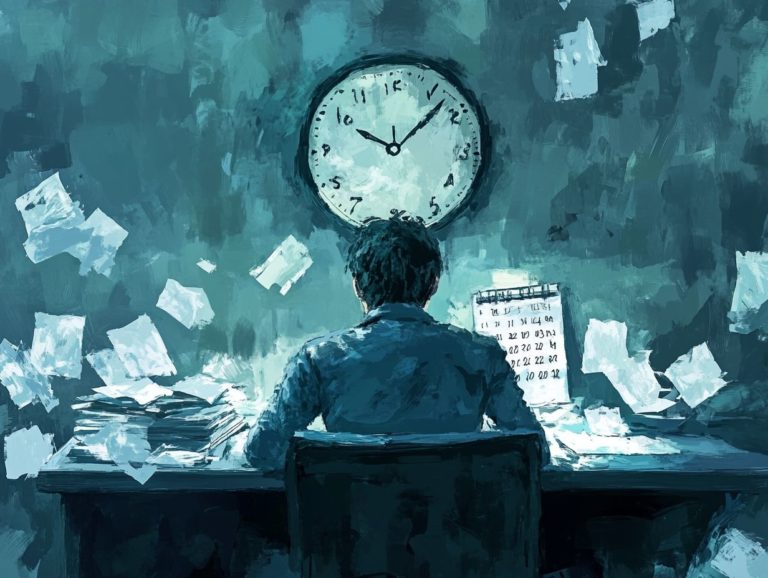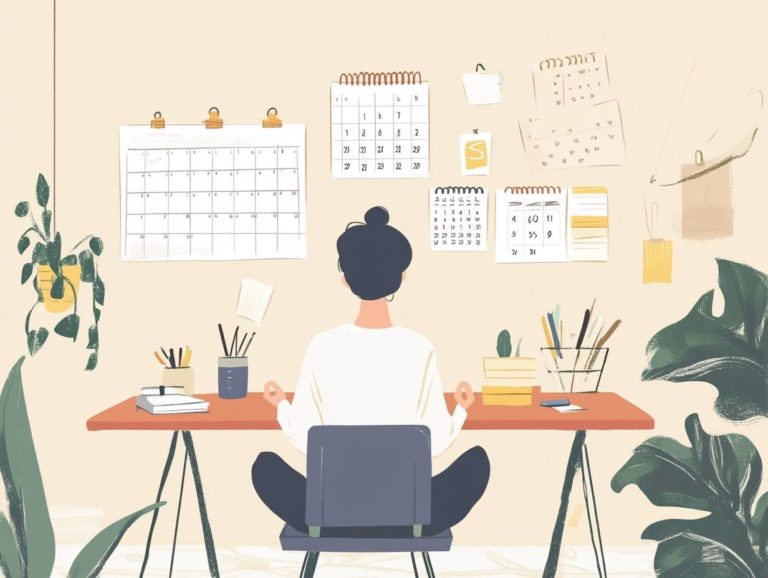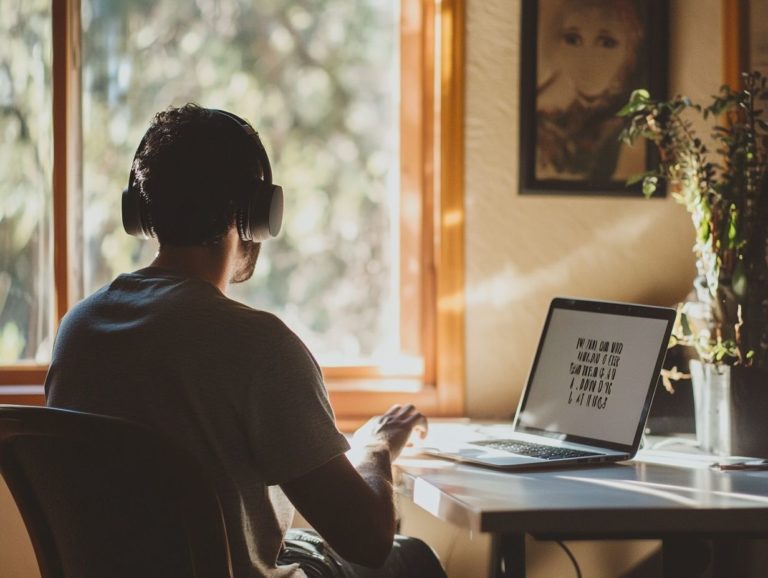How Environment Affects Your Tendency to Procrastinate
Procrastination is a familiar challenge that can undermine your productivity and overall well-being. Have you ever reflected on how your environment shapes this habit?
This article defines procrastination and discusses its causes. You’ll discover how your environment influences this habit.
You ll also find effective strategies to help you break the cycle of procrastination. Dive in to uncover ways to reclaim your time and enhance your efficiency!
Contents
- Key Takeaways:
- Understanding Procrastination
- Environmental Factors that Contribute to Procrastination
- Impact of Environment on Procrastination
- How to Build a Productive Space
- Breaking the Cycle of Procrastination
- Frequently Asked Questions
- How does my physical environment affect procrastination?
- Do the people around me influence my procrastination habits?
- How do environmental cues affect procrastination?
- Does the time of day impact my procrastination?
- Can my work environment affect my tendency to procrastinate?
- How can I optimize my environment to reduce procrastination?
Key Takeaways:
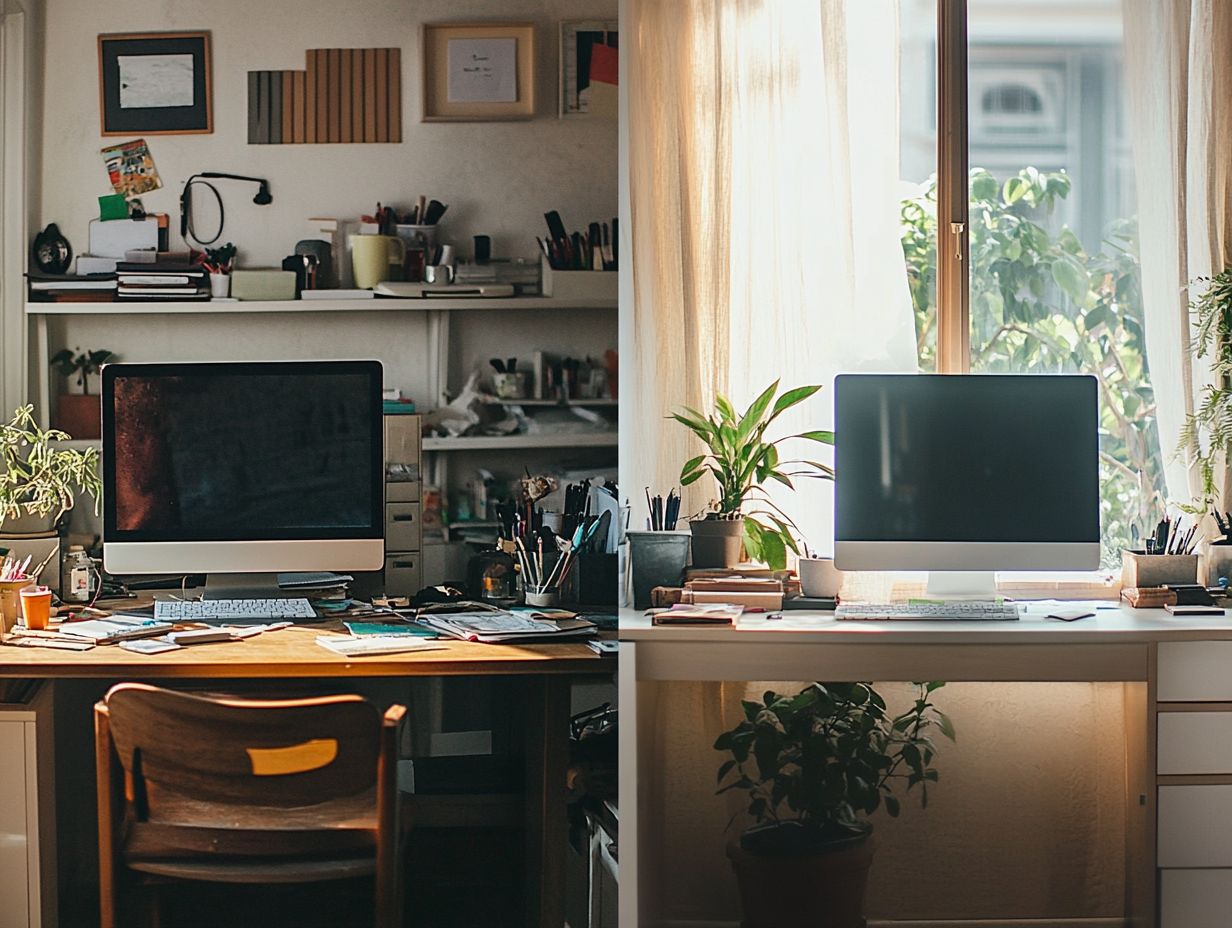
- Your physical environment, such as clutter and noise, can contribute to procrastination. Take charge! Organize your space and watch your productivity soar.
- Social environment, including peer pressure and comparison, can also play a role in procrastination. Surround yourself with supportive and motivated individuals to stay on track.
- By understanding how your environment affects your tendency to procrastinate, you can take steps to create a productive and conducive workspace and break the cycle of procrastination.
Understanding Procrastination
Procrastination is a complicated behavior that affects daily life, often revealing itself as a tendency to delay tasks. This inclination can lead to negative health outcomes and strained relationships.
You might savor a fleeting sense of relief when you decide to push a task to tomorrow, but this habit ultimately undermines your overall productivity and well-being.
Grasping the roots and implications of procrastination is crucial for cultivating healthier behaviors and enhancing your time management skills.
Definition and Causes
Procrastination is often defined as the intentional delay of an intended action, even when you’re fully aware that this behavior may lead to negative outcomes. It often stems from poor time management and emotional temptations like fear of failure or boredom.
This complicated behavior can arise from various underlying factors that significantly affect your ability to manage tasks effectively. For example, emotional temptations, such as a paralyzing fear of failure, can create a mental block, causing you to shy away from taking action altogether.
Personality traits, such as being overly anxious, can worsen procrastination by heightening anxiety and emotional instability, making it even easier to put things off. Additionally, task aversiveness, or seeing a task as daunting, is a key factor that leads to delays in accomplishing your goals.
By understanding these intricate dynamics, you can develop effective strategies to combat procrastination and cultivate a more productive mindset.
Environmental Factors that Contribute to Procrastination
Numerous environmental factors can lead to procrastination, crafting spaces that are particularly conducive to delay. To combat this, it’s important to learn how to create a supportive environment against procrastination. In academic settings, the interplay of distractions and social dynamics can significantly hinder your focus and motivation.
It becomes essential to recognize these influences and actively create an environment that fosters productivity.
Physical Environment
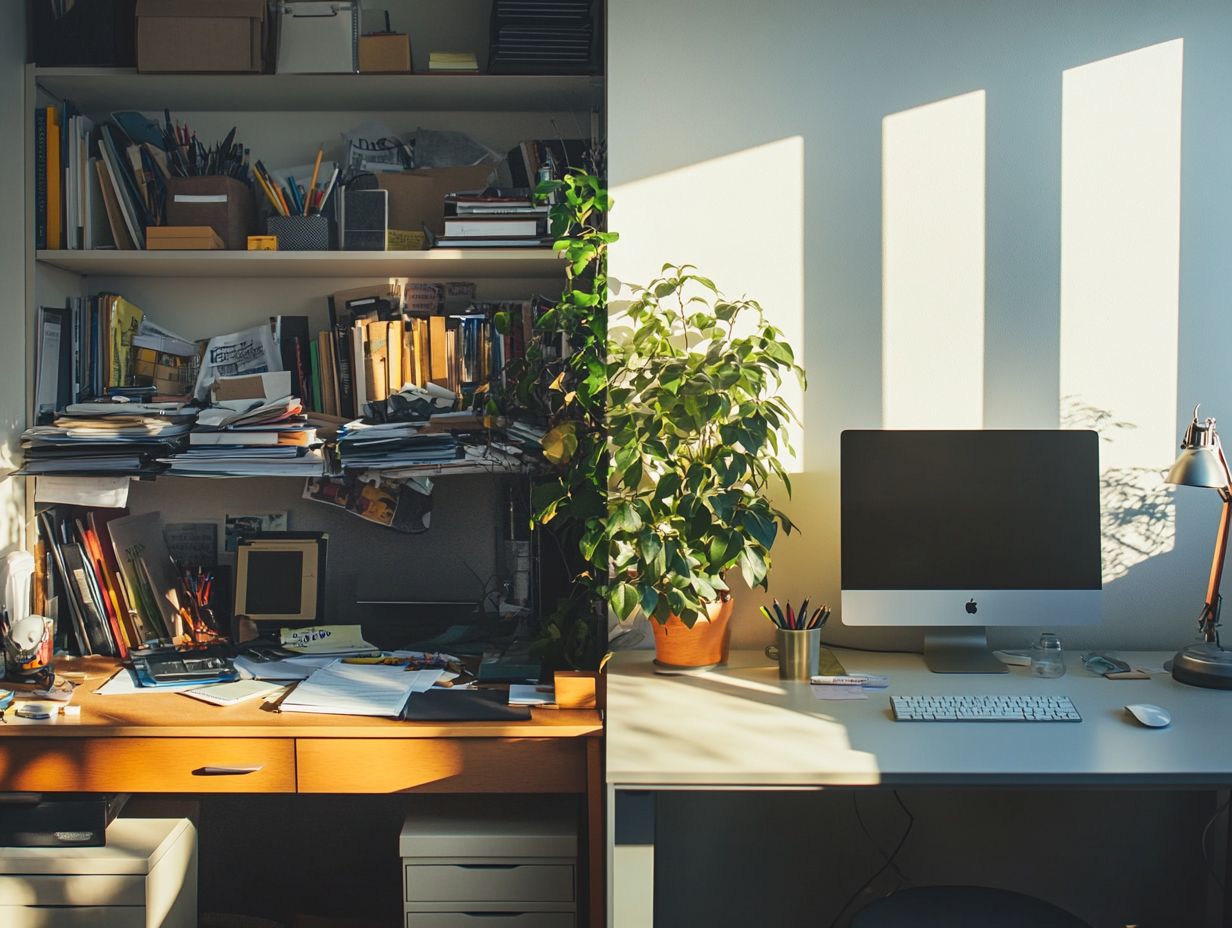
The physical environment significantly influences your procrastination habits. A cluttered or chaotic space can become a breeding ground for distractions, as highlighted in the effect of clutter on procrastination, making it challenging to maintain focus and self-regulation.
Conversely, an organized workspace fosters clarity and purpose, allowing you to tackle tasks with greater efficiency. Lighting plays a pivotal role as well; natural light can uplift your mood and boost alertness, making it easier to immerse yourself in your work.
Consider the noise levels around you whether it’s overly loud or unnaturally silent because both extremes can either enhance your concentration or amplify your inclination to procrastinate.
By recognizing these environmental factors, you can cultivate an atmosphere that minimizes procrastination, transforming your space into a powerful ally in your journey toward productivity.
Social Environment
The social environment you find yourself in, including peer pressures and group dynamics, can greatly impact your tendency to procrastinate. Understanding identifying triggers that cause procrastination in these environments often creates a perfect storm, reinforcing negative behaviors.
When you re around individuals who don t prioritize productivity or who routinely delay tasks, you might find yourself doing the same. Unsupportive atmospheres can cultivate a culture where procrastination becomes the norm, making it easier to justify your lack of motivation.
On the flip side, positive relationships that emphasize encouragement and accountability can instill a sense of obligation that helps combat procrastination. Your personality traits, like conscientiousness and self-discipline, play a significant role here. Those with higher levels of these traits usually manage distractions more effectively. This shows the intricate relationship between social influences and individual characteristics in shaping procrastination behaviors.
Impact of Environment on Procrastination
Environmental factors significantly influence procrastination. These external elements shape your behavior and ability to focus, often determining how much you engage in procrastination. To dive deeper into this topic, consider exploring understanding emotional triggers for procrastination.
Understanding this dynamic enables you to create conditions that minimize delays and enhance your productivity.
How Environment Affects Behavior
Your environment plays a crucial role in shaping your behavior. It can trigger procrastination by influencing your emotional responses and decision-making through various situational factors, as explored in the influence of environment on procrastination.
For instance, a cluttered workspace can evoke feelings of overwhelm, making it hard to concentrate on tasks. This chaotic environment disrupts your ability to focus, which is essential for prioritizing and executing your objectives.
In contrast, a well-organized space that promotes calm and clarity can boost your motivation, leading to a more efficient workflow. Social influences, like peer behavior and digital distractions, can also heighten procrastination tendencies, highlighting how your surroundings can dictate your productivity.
By recognizing these environmental cues, you can take steps to combat procrastination and create an atmosphere that encourages positive engagement with your tasks. Understanding the impact of distractions on procrastination can further enhance your efforts.
How to Build a Productive Space
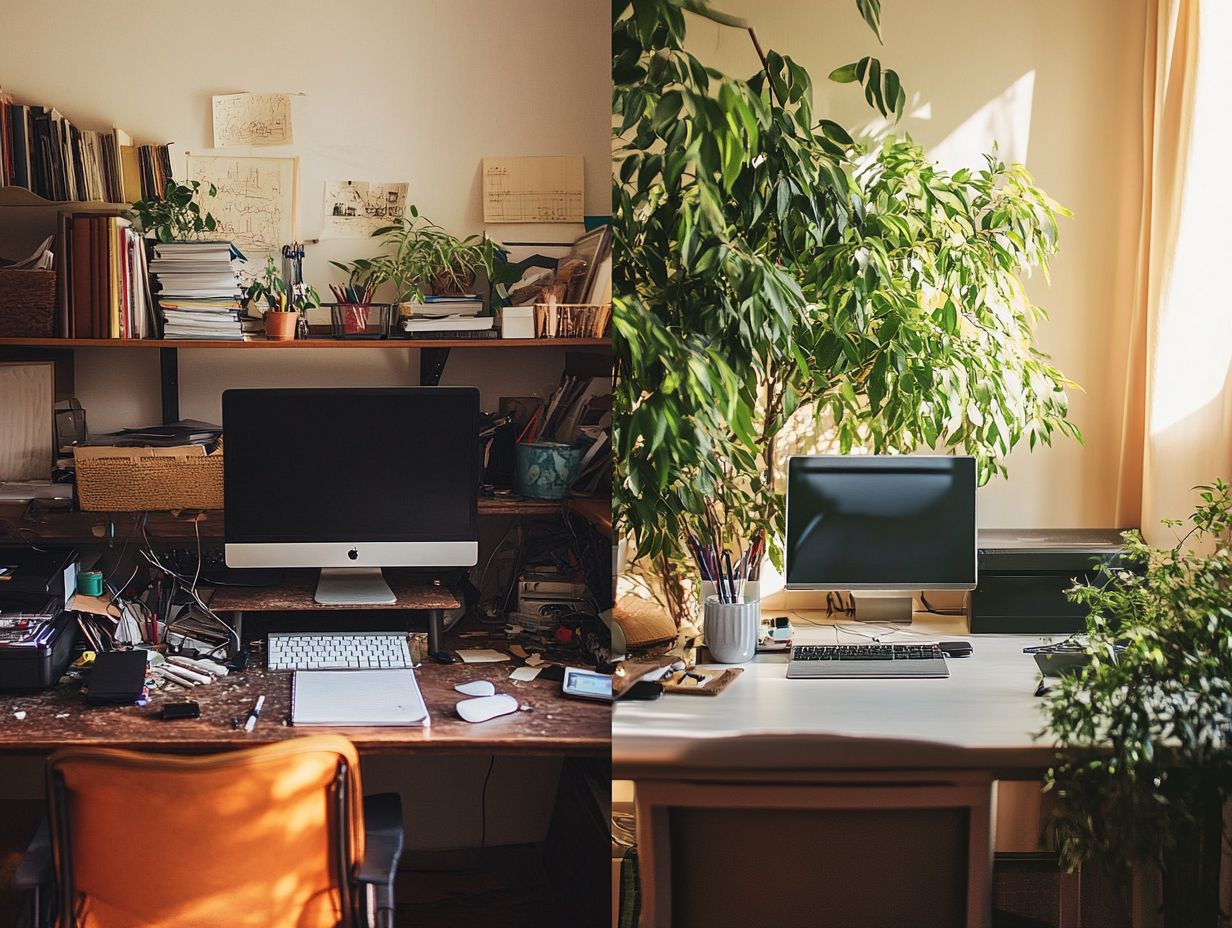
Creating a procrastination-friendly environment is crucial for boosting your productivity and honing your self-regulation skills. With the right tools and strategies, you can effectively tackle procrastination and make the most of your time.
Tips for Setting Up a Productive Environment
To create a productive environment, implement strategies that reduce task aversiveness and boost your self-control, ensuring that your surroundings align with your goals.
Start by organizing your workspace. A clutter-free area minimizes distractions and enhances mental clarity. Consider adding reminders of your aspirations, like vision boards or motivational quotes, to keep your objectives at the forefront.
Establish specific time blocks for your tasks to introduce structure to your day. This routine can be a powerful antidote to procrastination. Tools like timers or focus apps help you maintain intensity during work sessions.
Remember, crafting a space that reflects your values can provide the motivation and support you need on your journey to achieving lasting productivity.
Breaking the Cycle of Procrastination
Breaking the cycle of procrastination requires effective strategies that enhance your self-regulation and motivation. By implementing these approaches, you can conquer procrastination-related behaviors and successfully achieve your goals.
Strategies for Overcoming Procrastination
To truly conquer procrastination, you can employ a variety of strategies that boost your self-control, support effective goal-setting, and refine your planning and problem-solving skills.
One particularly effective method is utilizing the SMART criteria creating goals that are Specific, Measurable, Achievable, Relevant, and Time-bound. This approach clarifies your expectations and breaks larger tasks into manageable steps, making them feel less daunting.
Establishing a structured daily schedule will boost your self-discipline. By setting specific time blocks for your tasks and using techniques like the Pomodoro Technique a time management method where you work for a set time and then take a short break you can maintain focus and minimize distractions.
Consistently assessing your progress amplifies your motivation and reinforces a sense of accomplishment, effectively reducing the temptation to procrastinate. These actionable steps enhance your planning and enable you to take command of your time and activities.
Frequently Asked Questions
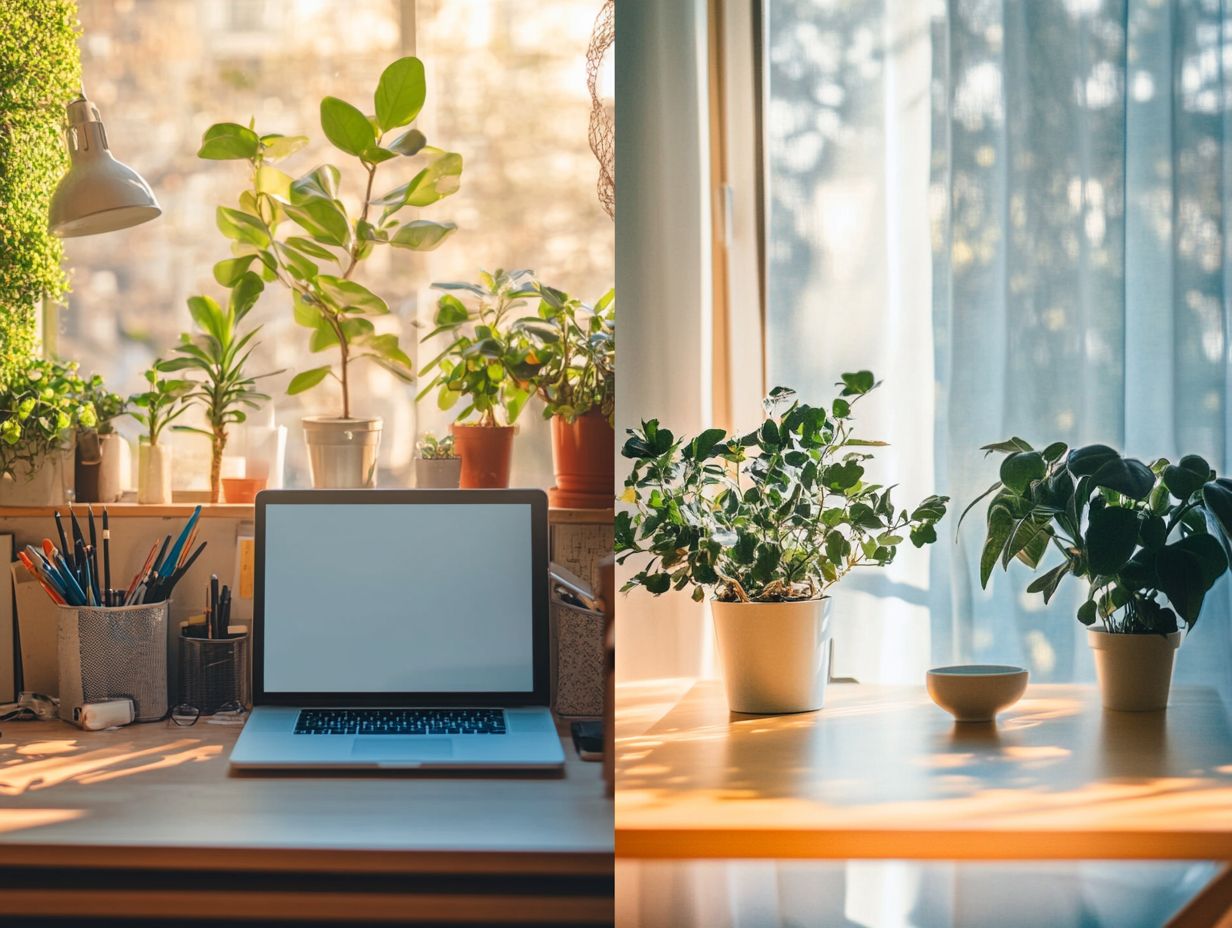
How does my physical environment affect procrastination?
Research shows that cluttered or disorganized spaces can increase stress and anxiety, contributing to procrastination. In contrast, a clean and organized environment promotes focus and motivation.
Do the people around me influence my procrastination habits?
Absolutely. The people we surround ourselves with significantly impact our behavior. Constantly being around procrastinators can easily pull you into that pattern, while motivated individuals can inspire you to stay on track and avoid procrastination.
How do environmental cues affect procrastination?
Environmental cues are external factors that trigger certain behaviors. For example, if you always study in your bedroom, your brain may associate that space with relaxation rather than productivity, making it easier to procrastinate.
Does the time of day impact my procrastination?
Yes, our energy levels and motivation vary throughout the day. Some people may be more prone to procrastination during certain times, like late at night when they are tired. It’s essential to recognize your patterns and plan your tasks accordingly.
Can my work environment affect my tendency to procrastinate?
Definitely. A chaotic or high-stress work environment can hinder focus and task completion. Conversely, a calm and organized workspace promotes productivity and reduces the temptation to procrastinate.
How can I optimize my environment to reduce procrastination?
There are several strategies to enhance your environment for productivity. This includes setting up a designated workspace, minimizing distractions, and creating a routine or schedule. Regularly reassess and adjust your environment to fit your needs and goals.
Don t wait start implementing these strategies today and take control of your time!

